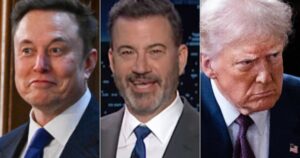Elon Musk’s AI Weighs in on Trump’s Tariffs: An Opinion

Understanding Tariffs: Insights and Implications
Tariffs are governmental taxes imposed on imported goods. These taxes are a fundamental component of trade policies, impacting how countries interact economically. This article explores the rationale behind tariffs, their implications for businesses and consumers, and the current landscape surrounding them.
What Are Tariffs?
A tariff is essentially a fee that governments charge on goods that are imported from other countries. These fees can serve multiple purposes:
- Protecting Domestic Industries: Tariffs make imported goods more expensive, which can lead consumers to prefer domestically produced items. This helps local producers compete against foreign imports.
- Generating Revenue: Governments can collect substantial revenue through tariffs, which can be used to fund public services and infrastructure.
- Political Strategy: Sometimes, tariffs are used as a political tool to exert pressure on foreign governments, often to encourage compliance with international standards or practices.
Different Types of Tariffs
There are primarily two types of tariffs that governments may impose:
Ad Valorem Tariffs: This type is calculated as a percentage of the total value of the imported good. For example, a 10% tariff on a product valued at $100 would amount to $10.
- Specific Tariffs: This involves a fixed amount charged per unit of the good, regardless of its overall value. For instance, a $5 tariff on each pair of shoes imported.
The Current Context: Trump’s Tariffs and Recent Developments
During his presidency, Donald Trump implemented several tariffs, particularly aimed at China, in a bid to protect American manufacturing and reduce trade deficits. These measures sparked widespread debate on their effectiveness and repercussions.
Economic Impact
Increased Prices for Consumers: Higher tariffs on imported goods typically lead to increased prices for consumers. When importers face higher costs, those prices are often passed down to consumers, making everyday products more expensive.
Potential Job Creation: While tariffs can protect jobs in certain domestic industries, they can also lead to job losses in others, particularly those reliant on imported materials.
- Global Trade Tensions: Tariff impositions can lead to retaliatory measures from other nations, resulting in escalated trade wars. An example was the backlash from countries like China, which imposed tariffs on American goods in response.
Insights from Experts
Experts argue that while tariffs can offer temporary relief to specific industries, they may not be a sustainable long-term solution. Many economists suggest that other approaches, such as investments in innovation and workforce development, may be more effective.
Elon Musk’s Perspective
Notably, influential figures like Elon Musk have weighed in on the tariff debate. Musk cites the importance of global trade and competition, arguing that tariffs can lead to an inefficient allocation of resources and drive up costs for consumers. His insights reflect a sentiment shared by many in the tech industry, emphasizing collaboration over isolationism.
Conclusion
Understanding the intricacies of tariffs and their broad implications is essential for navigating the complexities of global trade. As the economic landscape continues to evolve, policymakers must carefully consider the short- and long-term effects of any tariff measures to ensure a balanced and prosperous economic environment. By analyzing both the advantages and drawbacks, nations can make informed decisions that foster sustainable growth and stability.






